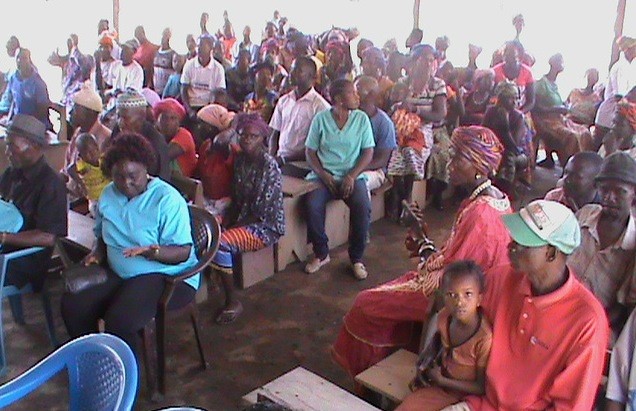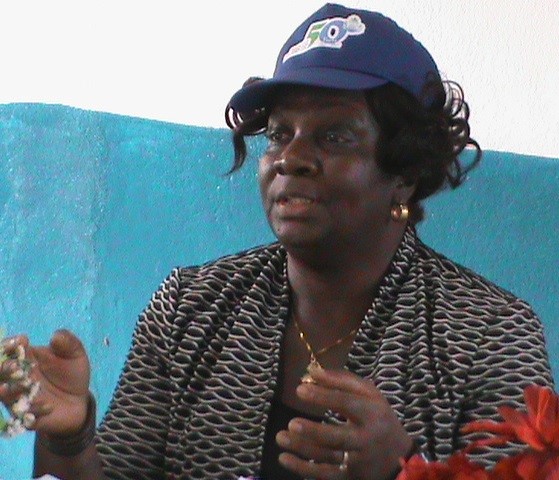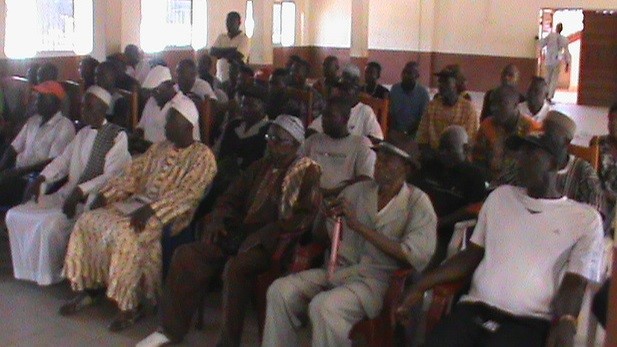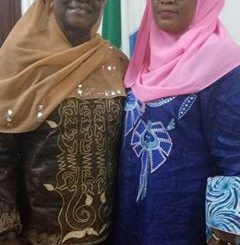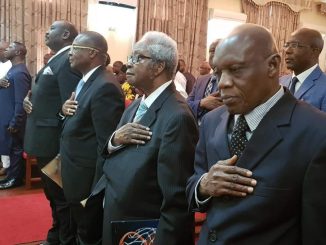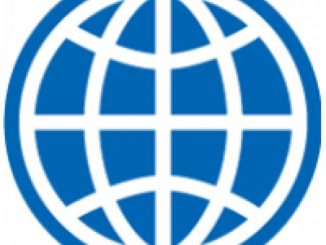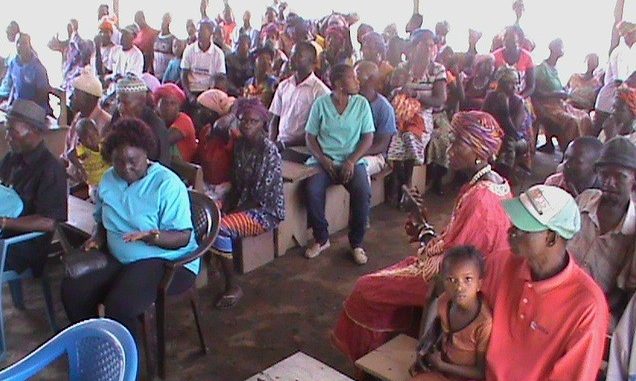
By: Jonathan Abass Kamara
District Health Management Teams and Communities in the Koinadugu, Bombali and Tonkolili districts have commended Care International, Sierra Leone Epidemic Control and Re-enforcement of Health Services (ECRHS) Project for providing them safe drinking water, training of Community Health Workers and feeder roads rehabilitation among key other interventions.
Cross section of stakeholders and community members at Kagbasia village,
Koinadugu district
The Care ECRHS project is centered in 100 communities, supporting 54 Peripheral Health Units to strengthen health service delivery, has trained 100 Community Health Workers on water and sanitation hygiene practices, Infection Prevention Control (IPC) training, 200 community leaders, and 1,500 community members have benefited from seedlings through the Livelihood Support Farming project and cash for work. The ECRHS Project apart from the other activities also work in close collaboration with District Health Management Teams, the Ministry of Agriculture Forestry and Food Security and other community stakeholders on surveillance, community engagement sensitization awareness programmes such as the National Immunization Days (NIDS) programme.
Deputy Health and Sanitation Minister 1, Madam Madina Rahman-Team Leader
The Project objectives include containment of Ebola outbreak, stabilization of the health system, and increase resilience of affected population within the intervention regions: Bombali District- Tambaka, Lieisegahun, Magbaimba, Ndowahun, Sanda Loko, Bombali Shebora, Makari Gbanti, Paki Masabong, Gbanti Kamaranka and Safroko Limba Chiefdoms. Koinadugu District – Neya, Folosaba, Dembelia, Kasonko, Wara Wara Yagala, Diang, Sengbeh, Sulima, Demblia, Sinkunia, Wara Wara Bafodia and Neini Chiefdoms.
Cross section of stakeholders and community members
Addressing District Health Management Teams and the various communities in the Kainadugu, Bombali and Tonkolili districts, during an Assessment Mission led by the Deputy Minister of Health and Sanitation 1 Madam Madina Rahman to evaluate the ECRHS Project activities, the Deputy Minister noted the appreciation of the communities for the numerous community development work done by Care, stressing the need for an Exit Strategy noting that Care may not continue to sustainably serve them.
Madam Rahman observed the need for solar system to address power supply in some of the facilities, especially the Labour Rooms, transfer of skills to building human resource capacity rehabilitation and construction of Birth Waiting Homes and reiterated the need for community engagement to promote Maternal and Child Health with a view to saving the lives of our vulnerable women and children within the President’s Post Ebola Recovery Priorities.
The Deputy Minister further observed that Care is working within the Policy of the Service Level Agreement jointly with the District Health Management Teams to avoid duplication of efforts as well as working positively to help achieve a resilient zero.
She encouraged the DHMTs to redouble their efforts, and the communities to promote girl child education and the accessibility of the health facilities to compliment government’s efforts in the reduction of maternal and child mortality across the country.
Madam Rahman highlighted the lessons learned from the Ebola outbreak and the transformation of its challenges to a resourceful reality, and promised the various communities that concerns raised during the mission would be taken into serious consideration for positive action.
Care Sierra Leone, Health Programme Coordinator, Dr. Sylvester Epiagoto who led the conducted tour to the various communities lauded the Ministry of Health for its strides in building a resilient health system, and spoke of the fruitful partnership with the District Health Management Teams in the area of integrated Disease Surveillance Response, Infection Prevention Control, training of community leaders and Health Workers, rehabilitation and construction of water wells among other key activities.

